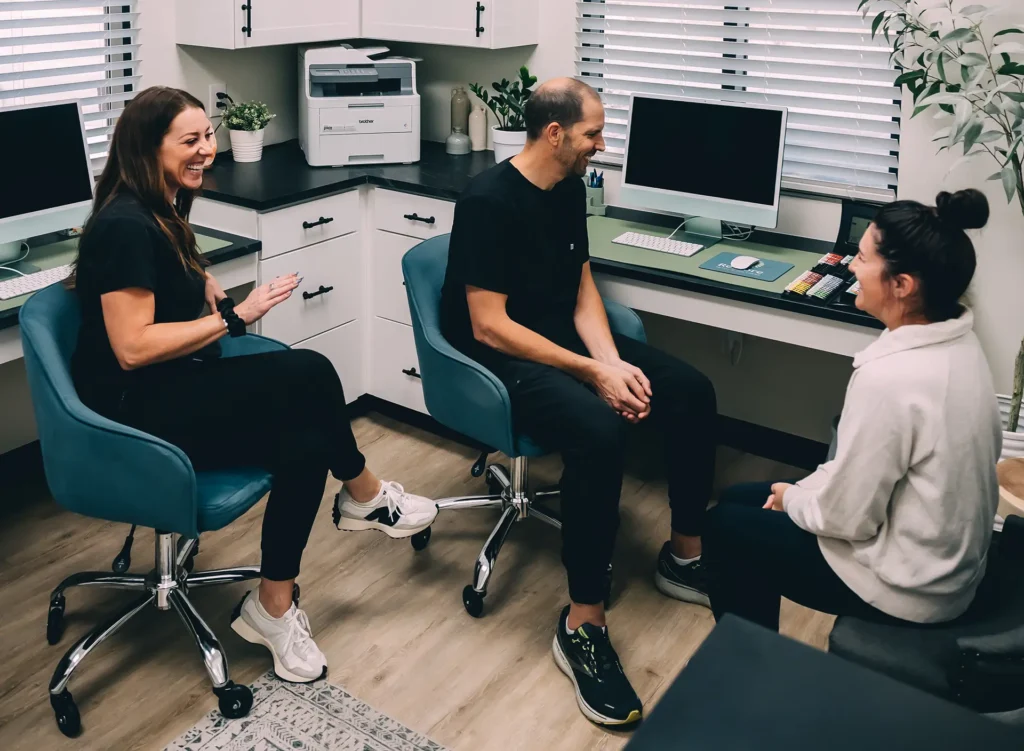Muscle testing is also known as Applied Kinesiology (AK) or manual muscle testing (MMT). It is an alternative medicine practice that claims to effectively diagnose structural, muscular, chemical, and mental ailments.
Applied kinesiology is not a part of the science of kinesiology, which is the study of the movement of the human body.
The basic idea behind AK is similar to one of Sir Isaac Newton’s Laws of Motion, which states, “For every action in nature there is an equal and opposite reaction.”
Applied kinesiology takes this concept and applies it to the human body. This means that any internal issues you may be experiencing would be accompanied by a related muscle weakness.
Applied Kinesiology is a technique used in alternative medicine to diagnose and treat various health conditions by evaluating muscle strength and weakness. The theory behind applied kinesiology is based on the belief that muscles are related to specific organs and glands, and that muscle weakness can indicate underlying health issues or imbalances in the body.
Practitioners of applied kinesiology use muscle testing to assess the body’s response to different stimuli, allergens, nutritional supplements, emotional stressors, and pathogens such as viruses, bacterias and parasites. During muscle testing, the practitioner applies pressure to the arm while the patient resists, and the response of the muscle is said to provide information about the body’s overall health and well-being.
Applied Kinesiology is extremely helpful identifying and correcting imbalances in the body, such as pathogen or toxic overload, allergies, or energy blockages, they can help restore health and promote healing.
Applied Kinesiology is our recommendation when you’re feeling frustrated with lack of answers and/or experiencing unexplained symptoms. It is always the first step in all our protocols as it helps us be able to find the specifics in each individual and customize a protocol to their needs.
What is the theory behind Muscle Testing?
The theory behind applied kinesiology is that every organ and system in the body is connected to a specific muscle group. By testing the strength of these muscles, practitioners believe they can identify imbalances or blockages in the body’s energy flow that may be causing health problems.
What happens during a Muscle Testing session?
The practitioner will use manual muscle testing to evaluate the strength of various muscles in the patient’s body, testing for parasites, food allergies and nutritional deficiencies. Based on the results, the practitioner will recommend treatments, dietary changes, nutritional supplements, and even exercise.
